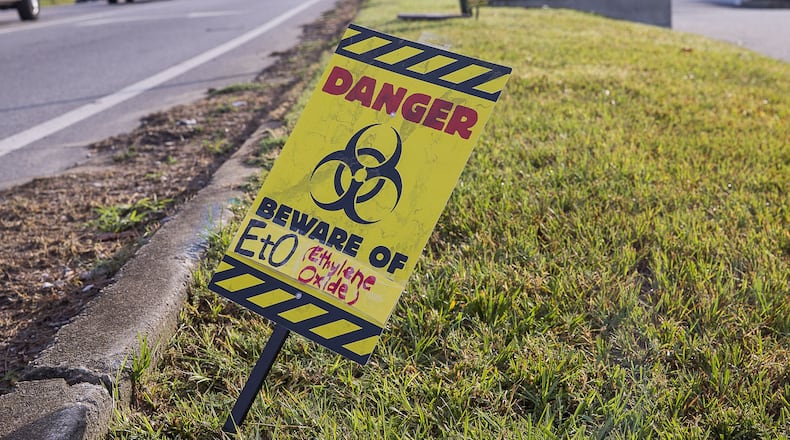Bills requiring companies to disclose when any amount of the toxic gas ethylene oxide is emitted unanimously passed both the Georgia House and Senate on Thursday.
House Bill 927 and Senate Bill 426 make notifications about the gas mandatory for a facility to continue operating in Georgia. Ethylene oxide leaks of any amount would have to be publicly disclosed on the Georgia Environmental Protection Division's website under the legislation.
Ethylene oxide is used in industrial processes, including medical sterilization, and has been used at facilities in Covington, Smyrna and south Fulton County. Residents near those facilities began to voice concern about the chemical's use after a 2019 report by WebMD and Georgia Health News linked it to higher cancer risks.
Tests at the Sterigenics plant in Smyrna and Becton Dickinson in Covington found elevated levels of ethylene oxide between December 2019 and January 2020.
Currently, the state requires companies to report when more than 10 pounds of ethylene oxide is released in a 24 hour period. The newly passed legislation would give businesses 24 hours to report any amount of the gas released.
Information about ethylene oxide emissions is currently available to residents, but only when a public information request is submitted.
An investigation by The Atlanta Journal-Constitution found that, until the recent attention, the state EPD has relied solely on the companies to report their emissions. Georgia has a history of being industry-friendly when it comes to environmental regulation. But the state has recently taken a harder line after the public displayed outrage in protests and town hall meetings.
The Senate and House bills have identical language, putting them on the fast track to Gov. Brian Kemp’s desk for signing.
About the Author
Keep Reading
The Latest
Featured



